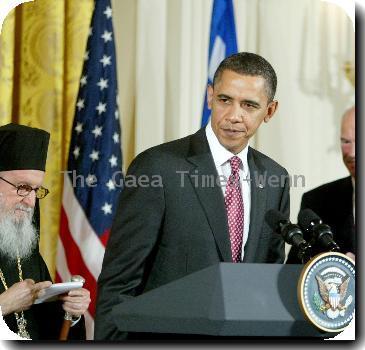G8 summit begins
By DPA, IANSFriday, June 25, 2010
HUNTSVILLE - Leaders of the Group of Eight (G-8) bloc of industrial nations began a summit in Canada Friday with warnings that efforts to tackle global poverty were in danger of faltering.
The G-8 gathering in the secluded resort town of Huntsville has also exposed sharp disagreements between the US and the European Union over how to keep the global economic recovery from faltering.
According to a draft summit statement seen by DPA, the leaders of the world’s eight most powerful developed economies are to sound an alarm bell over progress towards international aid and development goals.
Ten years ago, the UN set the Millennium Development Goals (MDGs), which were meant to eradicate extreme poverty and many diseases by 2015. But progress towards the goals has been uneven.
The economic crisis of the last two years “has jeopardised advancement towards meeting some of the 2015 targets,” the draft statement read.
The G-8’s discussions will continue Saturday, shifting from development to security issues. According to the draft, leaders will say they are “profoundly concerned” by Iran’s nuclear programme and call on all world governments to enforce UN sanctions approved by the Security Council earlier this month.
Meanwhile, a split between the US and EU members on how best to emerge from the economic crisis appeared to become increasingly entrenched. Those disagreements will be hammered out when the wider Group of 20 (G20) bloc, which includes major developing countries, meets in Toronto late Saturday and Sunday.
EU states have launched a sweeping series of budget cuts in recent weeks in a bid to convince markets, and their own voters, of their stability. But US officials are concerned that too much zeal in making cuts could hamper growth later.
“I hope we can build on this progress by coordinating our efforts to promote economic growth, to pursue financial reform, and to strengthen the global economy,” US President Barack Obama said in Washington.
Obama spoke just before leaving for the G-8 summit, which is made up of Britain, Canada, France, Germany, Italy, Japan, Russia and the US. The larger G20 also includes countries like China, India, Brazil and South Africa.
One of the main issues for the G-20 summit is expected to be its response to the financial crisis. The US is keen for rich states not to reel in their crisis spending too fast, out of fears that it could provoke a deep recession, such as the US saw in the 1930s.
But EU states have been shaken by the debt problems afflicting Greece, Spain and Portugal, and put the emphasis on reducing their budget deficits.
“There must be the flexibility for countries to act, taking account of their own national circumstances. But I believe we must each start by setting out plans for getting our national finances under control,” British Prime Minister David Cameron wrote in an article for Canadian daily The Globe and Mail.
EU officials say that European cuts will not hamper growth, and argue that all states should begin to cut their deficits no later than next year.
Canadian hosts sought to play down the rift that has dominated ahead of their summits. Len Edwards, Canada’s lead negotiator, insisted it was a question of “nuances” rather than major differences.
It was important to “find the fine balance between simulating the economy and fiscal consolidation,” Edwards told reporters.
The two summits are also set to debate issues including development aid, international security and climate change.

